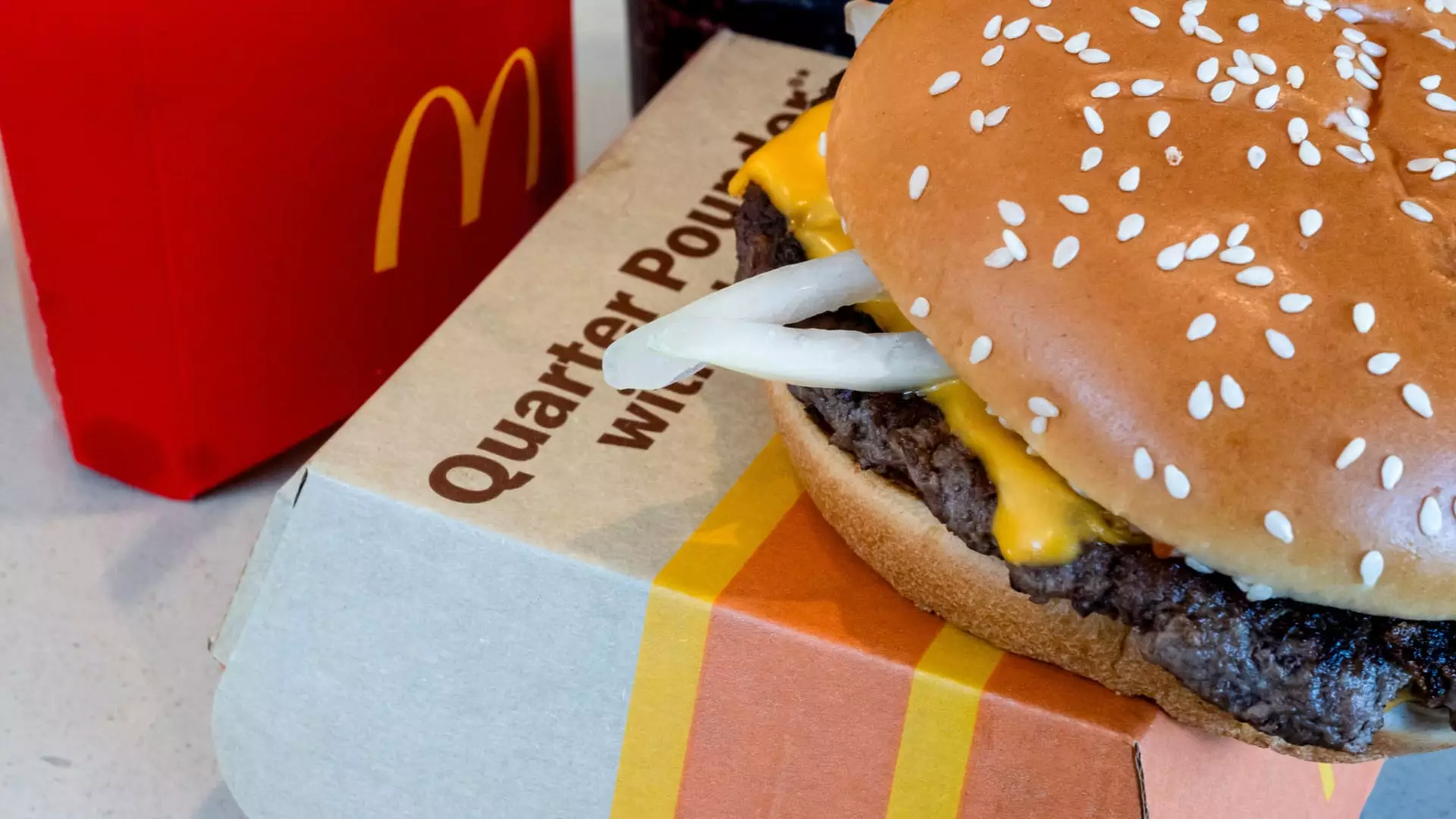The current E. coli outbreak tied to McDonald’s popular Quarter Pounders has captured public attention and ignited concerns about food safety across the fast-food industry. The Centers for Disease Control and Prevention (CDC) reported a troubling total of 75 cases in 13 states, which poses questions about the reliability of food sources in national chains. With 22 hospitalizations recorded and a confirmed death linked to the outbreak, health officials are intensely investigating how this situation developed and continues to evolve.
The CDC’s findings reveal that of the 61 patients interviewed, every single one had consumed food from McDonald’s, indicating a potential systemic issue within the supply chain. The ages of those affected range from teenagers to seniors, underlining that no demographic is immune to such foodborne illnesses. Compounding these concerns is the fact that the actual number of cases may surpass reported figures, as many people recover without medical attention and do not undergo testing for E. coli.
As the fallout from this outbreak unfolds, McDonald’s has faced a drop in stock prices, decreasing by 2% following the CDC’s announcement. This decline is particularly concerning given that the stock was already down 6% before the update. The Quarter Pounder is a signature item for McDonald’s, bringing in significant sales annually. With such financial stakes involved, the company’s response to this health crisis is critical not only for its reputation but also for its financial viability.
The company has responded by suspending the use of slivered onions and beef patties sourced from potentially contaminated suppliers in multiple states. Identifying Taylor Farms as the supplier of the onions—currently at the center of scrutiny—has led other fast-food establishments, like Burger King and Taco Bell, to withdraw similar products from their menus to mitigate risk. This quick response showcases the interconnected nature of the food supply chain and the domino effect that a single supplier issue can trigger.
While the immediate focus remains on McDonald’s, the implications of this outbreak extend across the fast-food landscape. As federal investigators delve deeper, they are also examining the beef patties for potential contamination. This highlights the need for heightened regulatory vigilance in food safety practices, particularly for chains that operate on a national scale. A failing in one part of their supply chain not only endangers consumers but risks the entire brand’s integrity and financial health.
This incident comes at a challenging time for McDonald’s, which has been navigating sluggish sales amid changing consumer habits that prioritize value. The firm’s strategy to pivot to budget-oriented meals reflects an understanding of these market conditions, but a crisis such as this could derail efforts to recover from declining patronage. Analysts had initially projected modest sales growth, but the E. coli outbreak intensifies the stakes ahead of the quarter’s earnings report.
Despite the seriousness of the outbreak, experts suggest that unless more severe health crises arise, the damage to McDonald’s brand may not be long-lasting. Comparisons are being drawn to previous outbreaks, such as one involving Wendy’s, which, after initial setbacks, managed to restore customer trust. However, rebuilding faith in food safety is an arduous task and requires strategic communications and transparency from the company.
In the soon-to-come investor calls, McDonald’s will likely need to reassure stakeholders about its commitment to food safety and operational integrity. They must convey their strategies for preventing future outbreaks and address consumer concerns head-on. Though the current episode involves serious ramifications, its resolution could provide valuable lessons in managing public perception amid a crisis.
The E. coli outbreak linked to McDonald’s serves as a critical case study for the fast-food industry, providing insights into the vulnerabilities present within food supply chains and the necessity for prompt action and transparent communication. Food safety issues have the potential to ripple through corporate strategies, influencing consumer trust, stock performance, and regulatory scrutiny. As McDonald’s navigates this tumultuous period, the effectiveness of their response will be paramount in determining their trajectory moving forward.


Leave a Reply